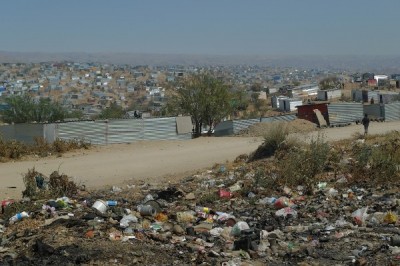China vs the West: Relations with Africa. The Geopolitical Game that Played Out in Namibia to Influence Elections
This geopolitical conflict between the Chinese and the Western world is fiercely playing out and manifesting itself in Africa

Leading up to the 2019 general elections, the ordinary Namibian citizen did not, and even some of those with some level of sophistication did not seem to fully grasp and understand what was happening in the country and why it was happening as such.
External interference in local elections anywhere is a real thing. The understandings of ordinary citizens of current events are influenced by and limited to whatever “information” their preferred candidate or source of political “information” chooses to divulge to them during campaign rallies or through social media platforms. However, the current major divisions among the population are ultimately the result of a broader geopolitical game between The Peoples Republic of China and the Western world. The main reason is that the emergence of China as a global player in international business transactions (i.e. government tenders, international mining, international consulting, etc.) has ruffled many feathers in the Western business world (Anglo-America), and the Western world, which sees itself as the master of capitalism and which is mainly built on the exploited wealth of especially African and other third world nations, does not take easy to being outsmarted in international business transactions (e.g. Trump’s trade wars with China). Once this perspective is understood, it is then no surprise that Western world rating agencies (e.g. Fitch and Moody’s) have been downgrading countries such as Namibia and South Africa over the last few years that the Chinese (geopolitical rival) have enjoyed big business opportunities in those countries.
This geopolitical conflict between the Chinese and the Western world is fiercely playing out and manifesting itself in Africa in general and Namibia in particular, especially now that the elections in the country were about to take place. The game of geopolitics is played by identifying the “weak points” associated with a country (poverty, unemployment, etc.), and those “weak points” are then attacked with full force to stoke up the emotions of the population and put political pressure on the people in power. The same strategy under different circumstances is used against any country that seem not to fully promote Western world business interests (e.g. Iran, Cuba, Venezuela, etc.). Namibians must, therefore, understand that due to the ongoing failure of the Western world to compete against The Peoples Republic of China in international business transactions, the Western world might have possibly deployed its local political front-men in Africa to seriously challenge, under the veils of democracy, the seemingly pro-Chinese governments. Local bread and butter issues, which are legitimate and need to be addressed, are the most obvious and effective weapon employed to win over the hearts of local people that anyone seeking power will use to achieve that objective.
Once the local political front-men get in power, however, the Western world is automatically in charge and the overall problems and challenges of the people remain, despite that their “new leader” seems to be ruling. It is very interesting to note that Wikileaks is a Western world organisation, and it only saw it fit to “leak” certain information so close to the date that the country was expected to make decisions at the polls. Unethical behaviour of any kind by whomever should never be condoned, but as free-thinking patriotic Namibians, we must also look at the bigger picture and put things in their right perspectives.
*
Note to readers: please click the share buttons above or below. Forward this article to your email lists. Crosspost on your blog site, internet forums. etc.
Abednego Katuushii Ekandjo writes in his private capacity.

